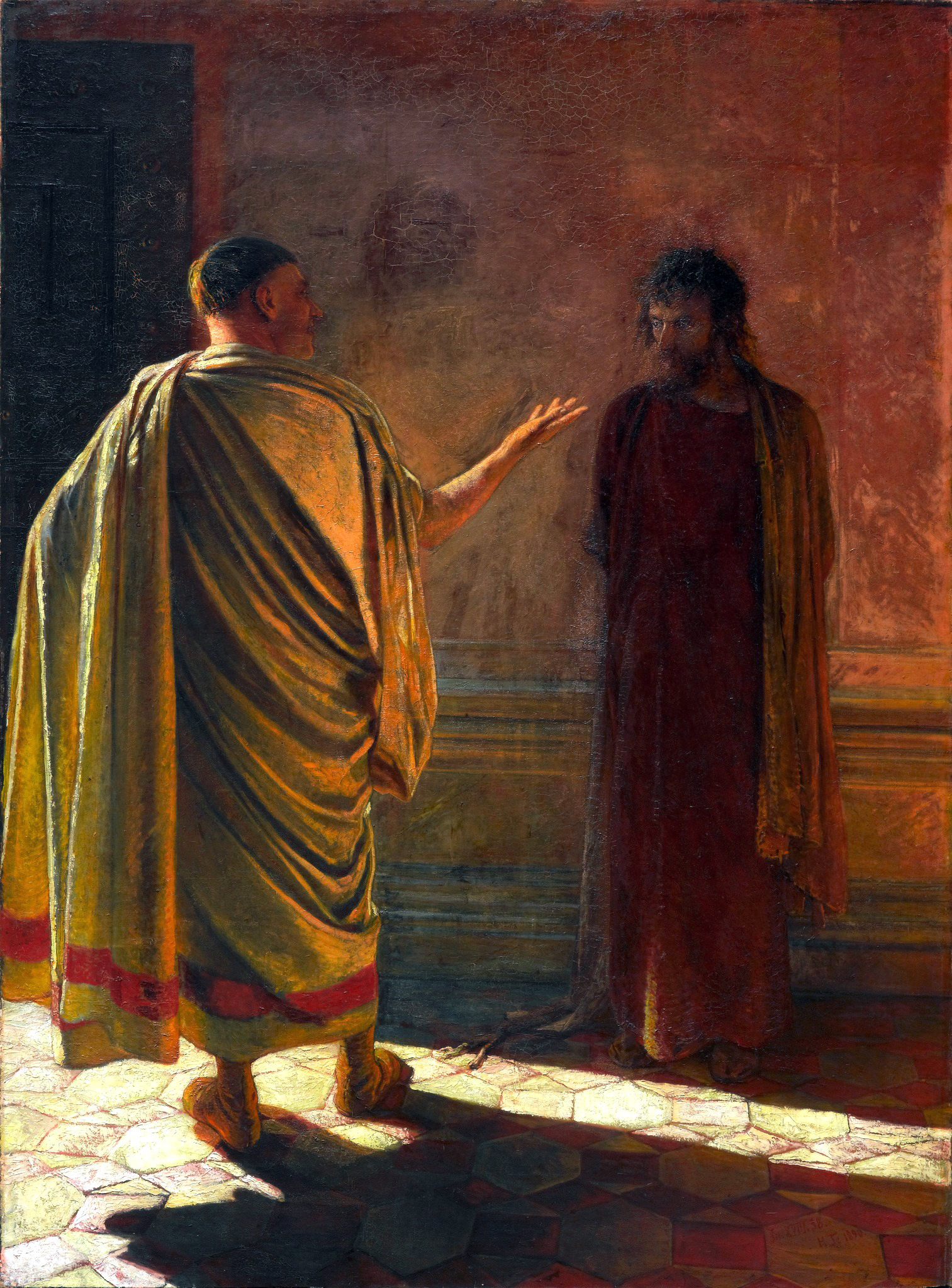By: Brian G. Chilton | September 30, 2019
“What is truth?’ said Pilate” (John 18:38). This classic question was asked by Pilate to Jesus during Jesus’s trial. This question does not resonate with Pilate only. In fact, people throughout generations have asked the same. What is truth? What is the nature of truth? Can truth be known?
While Jesus did not answer Pilate’s question during his trial, the nature of truth was already taught in John’s Gospel in three ways. First, one must define what is meant by truth. Aletheia is the Greek term which is translated as truth. It describes something as it exists in reality. So, when Jesus or John describes truth, they are noting the reality of their point of reference. Thus, the term aletheia holds that truth exists and is knowable.
Second, Jesus describes the nature of truth throughout John’s Gospel. Jesus noted that anyone who lived by the truth, desiring to know what was real, would come into the light of God’s glory and his revelation so that his or her works would be shown to be accomplished by God (John 3:21). That is, a person living for the truth acknowledges God’s existence and desires to live for God. Jesus teaches that God desires people to worship him in spirit and truth (John 4:23). Jesus not only noted that truth exists and can be known, but he also taught that the truth brings freedom (John 8:32). Jesus contrasts the truthfulness of God from the lies of the devil (John 8:44). By doing so, Jesus acknowledges the laws of logic by pointing out that truth exists, that the opposite of truth is a lie, and that something cannot both be true and false. Jesus denotes that he is the exclusive way to God the Father because of him being the way, the truth, and the life (John 14:6). Jesus also teaches about the truthful nature of God’s Holy Spirit (John 14:17; 15:26; 16:7, 13). Jesus prays that the Father would sanctify, or set apart, his children by their devotion to God’s truth (John 17:17). Before Pilate’s epic philosophical question, Jesus had already noted that he came to “testify to the truth” (John 18:37, CSB) and that “Everyone who is of the truth listens to [his] voice” (John 18:37, CSB).
Third, John also acknowledges the existence of truth in his opening epilogue. When discussing the Logos (i.e., the “Word”), John notes how the Logos became flesh. That is, the Wisdom of God became a human being. As a disciple, John states that he was one of those who observed the glory of the incarnate Logos. He also stated that the Logos was sent from the Father and was full of “grace and truth” (John 1:14, CSB). John acknowledges that Jesus spoke the truth in all that he said and done. Furthermore, while Moses gave the law, grace and truth came from Jesus (John 1:17). In the Gospel’s postscript, either John or an editor of the Gospel noted that John was a witness to the events of Christ’s life and that his testimony is verified to be true.
So, what can we know about truth from John’s Gospel? First, we find that truth does exist. Truth is not personal, but it is objective. Truth is what exists in reality. It is the way things really are and the way things operate. Truth is the opposite of a lie, and something cannot both be true and false. Finally, the Gospel of John notes that true leads to the reality of certain theological truths: 1) God’s existence, 2) a salvific relationship with God through Christ, and 3) redeeming and freeing aspects which bring about transformational living.
To answer Pilate’s question, truth is found in a transcendent, omniscient, omnipotent, and omnibenevolent reality known as God. This God is the basis for all truth and all reality. For without God, nothing would exist that exists (John 1:3; Col. 1:16–18; Heb. 2:10).
About the Author
Brian G. Chilton is the founder of BellatorChristi.com, the host of The Bellator Christi Podcast, and the author of the soon to be released book The Layman’s Manual on Christian Apologetics. He received his Master of Divinity in Theology from Liberty University (with high distinction); his Bachelor of Science in Religious Studies and Philosophy from Gardner-Webb University (with honors); and received certification in Christian Apologetics from Biola University. Brian is currently enrolled in the Ph.D. program in Theology and Apologetics at Liberty University and is a member of the Evangelical Theological Society and the Evangelical Philosophical Society. Brian has been in the ministry for nearly 20 years and serves as the Senior Pastor of Westfield Baptist Church in northwestern North Carolina.
© 2019. BellatorChristi.com.






[…] Tweeted by @ChristianDefORG https://twitter.com/ChristianDefORG/status/1179795767042723840 from Church On The Net Today Read Article . . . […]
[…] Source: What is Truth? A Description of the Nature of Truth in the Gospel of John […]